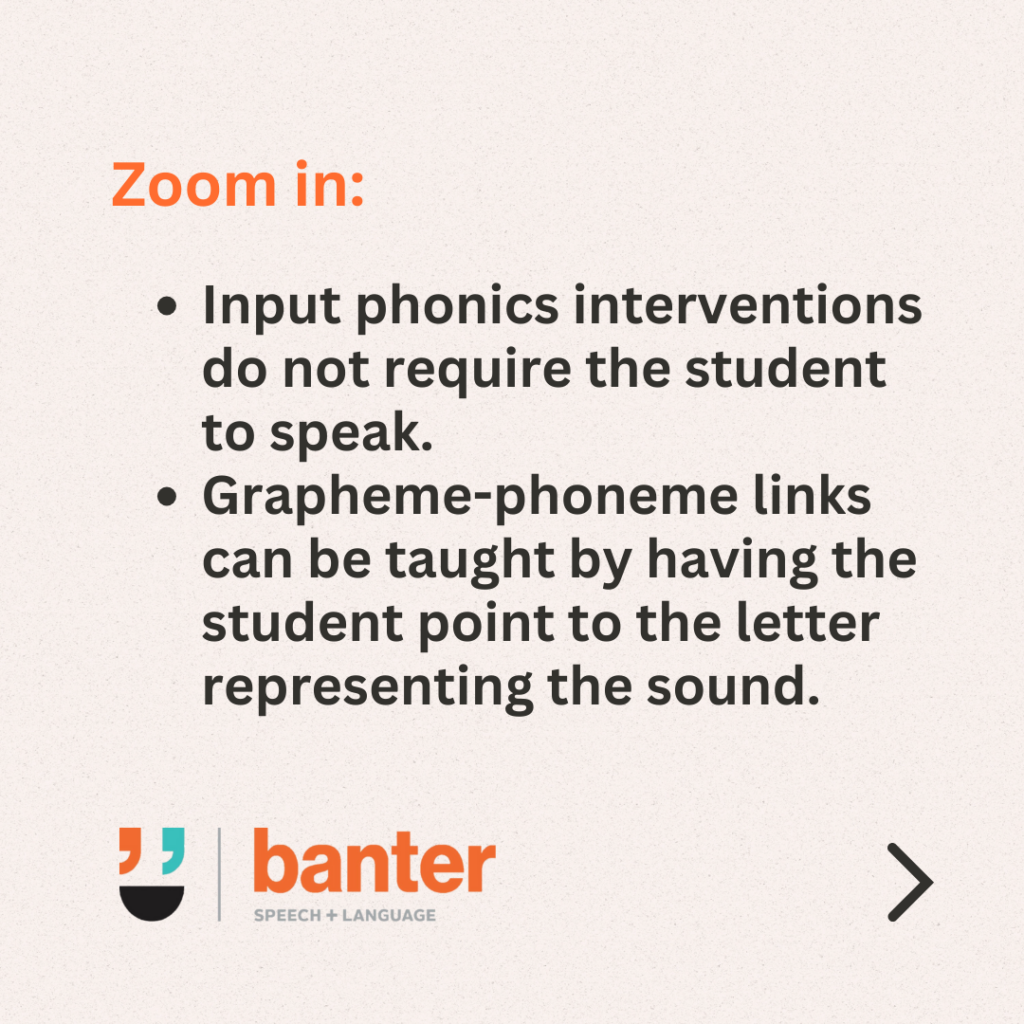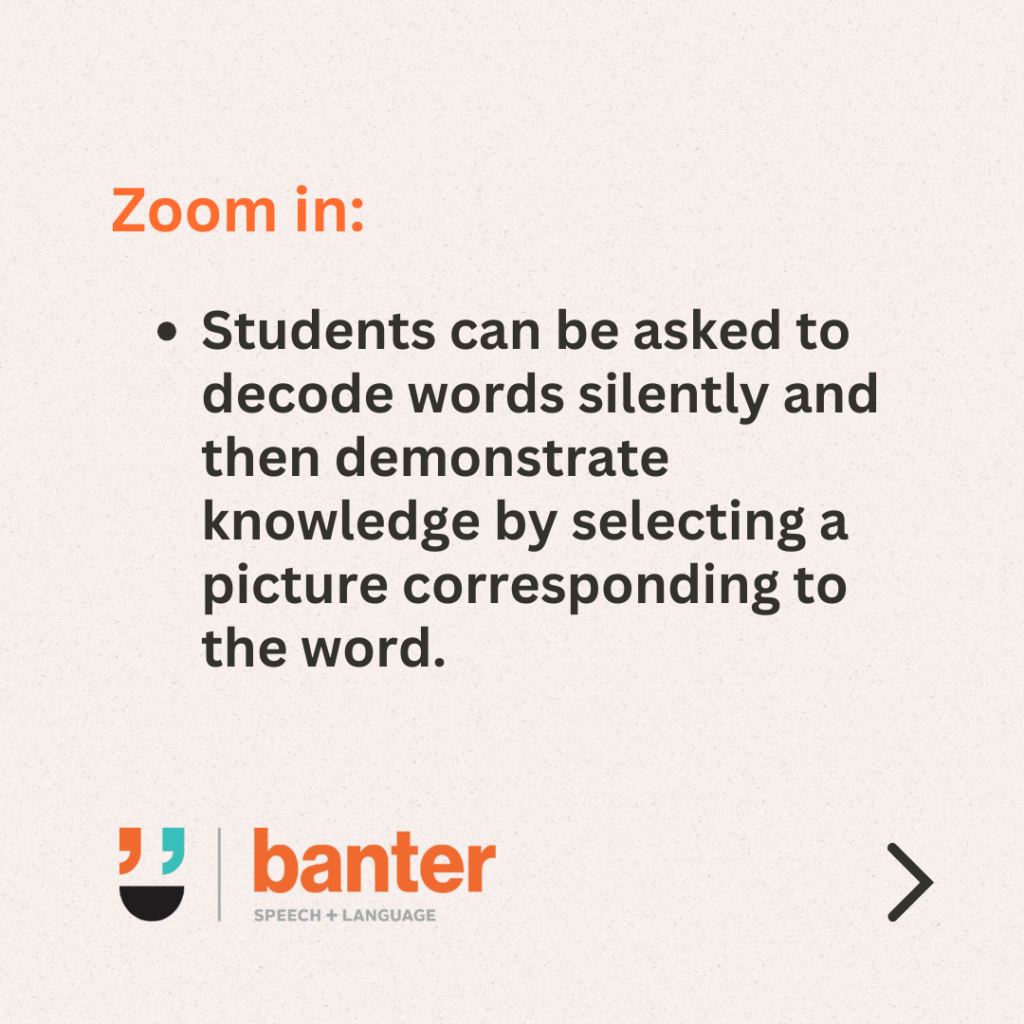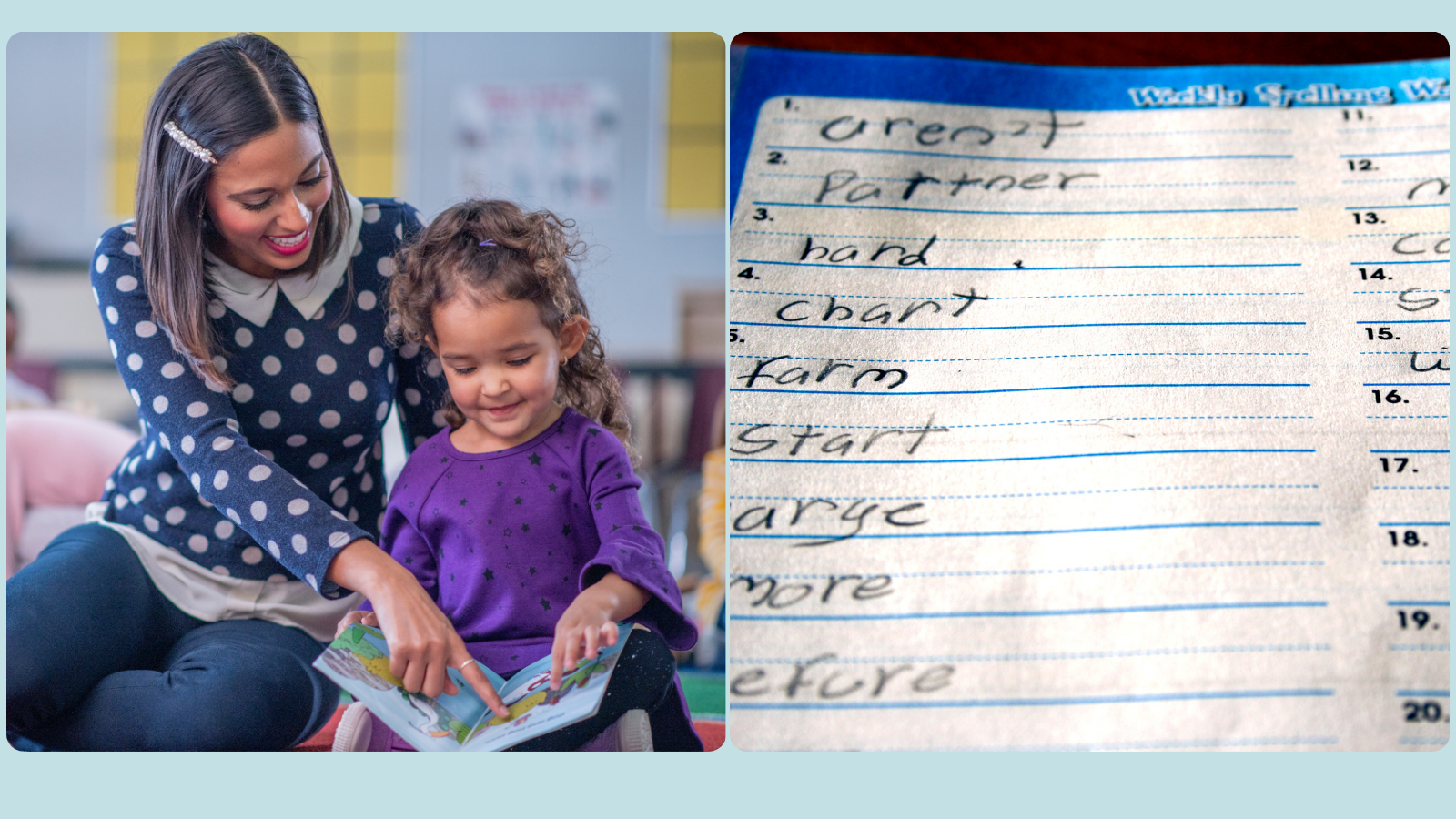For young students with CAS and early reading difficulties, input phonics may help with literacy
When teaching students with childhood apraxia of speech (CAS) to read, input phonics may help compensate for difficulties with speech sound accuracy, speech sound sequencing, polysyllabic word production, speech rate and stress.
Why it matters:
- Many – but not all – children with CAS have reading difficulties, including challenges with letter-sound links, blending, segmenting, word reading, and, later, reading fluency.
- Systematic, synthetic phonics interventions are recommended for young students with reading difficulties. But CAS-related speech errors can get in the way of early blending, segmenting, word reading, and reading fluency success.
Zoom in:
- Input phonics interventions do not require the student to speak.
- Grapheme-phoneme links can be taught by having the student point to the letter representing the sound.
- Students can be asked to decode words silently and then demonstrate knowledge by selecting a picture corresponding to the word.
Go deeper:
More from us:
Why preschoolers with unclear speech are at risk of later reading problems: red flags to seek help
Practice Tip: How to assess and support students with reading and speech sound difficulties
For beginning readers, where should we start teaching? Phonics, sight words, or both?
This article also appears in a recent issue of Banter Booster, our weekly round up of the best speech pathology ideas and practice tips for busy speech pathologists and speech pathology students.
Sign up to receive Banter Booster in your inbox each week:

Hi there, I’m David Kinnane.
Principal Speech Pathologist, Banter Speech & Language
Our talented team of certified practising speech pathologists provide unhurried, personalised and evidence-based speech pathology care to children and adults in the Inner West of Sydney and beyond, both in our clinic and via telehealth.















